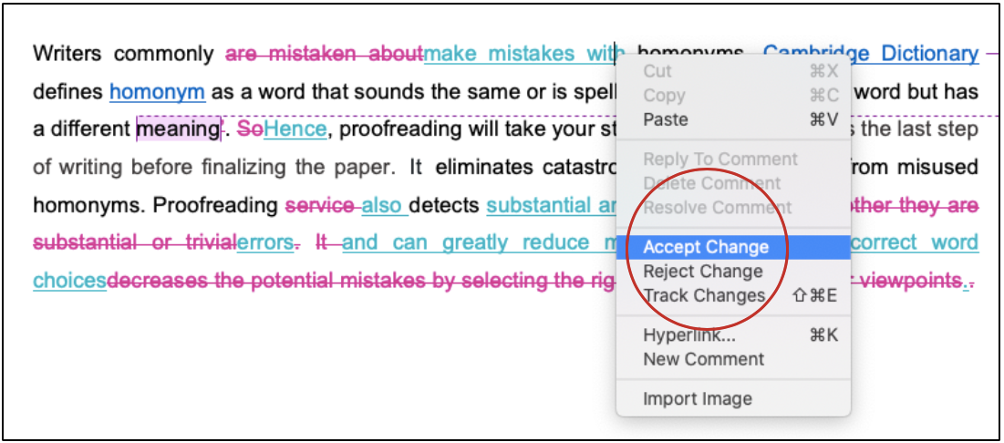It is common to see scholars submit their articles to the wrong journals or overlook the requirements of a journal and face rejection. In other words, they resort to haphazardness, ruling out any possibility of an ordered approach to the journal selection endeavor. This article aims to organize the randomness, as stated above, by listing five tips for picking a journal. Thus, readers looking to systemize their article submission efforts should implement them perforce.

Journal articles are some of the most veritably researched and meticulously put together academic documents. Their composition entails conforming to strict linguistic and formatting standards, ensuring factual integrity and proper citation, and exploration of targeted research efforts. And understandably so, for these articles contribute valuable content to the greater wealth of the subject matter they fall under. However, before such articles can enrich the knowledge bank of a field of study, they need to be published in reputable journals. This is where most scholars develop a feeling of dread and dismay. How to choose a journal for article publication is a question that many academics find tough to answer.
It is not uncommon to see scholars submit their articles to the wrong journals or overlook the requirements of a journal and face rejection. In other words, they resort to haphazardness, ruling out any possibility of an ordered approach to the journal selection endeavor.
This article aims to organize the randomness, as stated above, by listing five tips for picking a journal. Thus, readers looking to systemize their article submission efforts should implement them perforce.
The following tips concern some of the core aspects of the journal selection process that scholars should be aware of:
Choosing a journal should ideally begin with identifying and listing all the journals pertinent to the subject matter. A popular way of doing so is employing the services of online journal finders. A journal finder is a tool that locates relevant journals based on keywords - either the title or the abstract of the article.
Once scholars have enumerated some journals, they should juxtapose their articles with those published in the listed journals. Doing so will allow them to gauge the quality level of the picked journals and further constrict the selection process.
Every journal has some objectives that it seeks to fulfill by publishing articles in it. These objectives can comprise specific research fields, cross-discipline relevance of an article topic, degree of accessibility, readership, etc.
As per the academic jargon, these objectives carry the moniker “scope,” a word that signifies all that a journal stands for.
Ascertaining the scope of a journal allows scholars to match it with the purpose of their articles. This, further, enables them to deem the suitability of a journal for article submission more accurately.
If implemented correctly, the first two tips will considerably reduce the number of journals at hand. To further reduce the count and bring the number of journals to one, scholars need to assess the following parameters:
Whether the journal is indexed in major online databases.
Whether the peer-review process is transparent and justifiable.
Fees, if any, that a journal charges for publishing articles.
Publication frequency of the journal - in case a scholar needs their article to get published early.
Whether the journal targets a specific criterion of readers and critics.
Editorial quality - grammatical inconsistencies, incongruent writing, etc.
Impact of the journal in academia.
These metrics work toward delineating the credibility and ethical adherence of a journal. Hence, it becomes comparatively easier for scholars to pick a journal based on overt and evident factors.
The previous tip culminates the process of selecting a journal for article publication. However, simply choosing a journal is not the end. Scholars also need to verify whether their articles stand on par with the standards posed by the journal.
Every journal offers a comprehensive set of submission guidelines that include certain criteria that an article should fulfill. Typically, these include
Formatting guidelines
Word count - for the entire document as well as for specific sections
A cover letter
Ethical approvals for research methods.
These guidelines are crucial for any journal as they enforce a cohesiveness mandatory to maintain a minimum publishing threshold. In case an article falls short of implementing these guidelines, rejection is imminent. Thus, scholars should make it a point to ascertain every guideline carefully and abide by it in totality.
Publishing articles in journals is a proven way to increase the career prospects of every scholar. It garners one recognition, helps them supplement their field of study with credible research, encourages future research, and introduces them to the journal publication process.
Thus, virtually every scholar must know how to choose a journal to submit their papers. However, citing the various uncertainties surrounding the publication process, one can get overwhelmed when picking the right journal. Thus, scholars should follow and implement the aforementioned four tips and maximize their journal publication efforts.
Best Edit & Proof expert editors and proofreaders focus on offering manuscripts with proper tone, content, and style of academic writing, and also provide an upscale editing and proofreading service for you. If you consider our pieces of advice, you will witness a notable increase in the chance for your research manuscript to be accepted by the publishers. We work together as an academic writing style guide by bestowing subject-area editing and proofreading around several categorized writing styles. With the group of our expert editors, you will always find us all set to help you identify the tone and style that your manuscript needs to get a nod from the publishers.

You can also avail of our assistance if you are looking for editors who can format your manuscript, or just check on the particular styles for the formatting task as per the guidelines provided to you, e.g., APA, MLA, or Chicago/Turabian styles. Best Edit & Proof editors and proofreaders provide all sorts of academic writing help, including editing and proofreading services, using our user-friendly website, and a streamlined ordering process.
Visit our order page if you want our subject-area editors or language experts to work on your manuscript to improve its tone and style and give it a perfect academic tone and style through proper editing and proofreading. The process of submitting a paper is very easy and quick. Click here to find out how it works.
Our pricing is based on the type of service you avail of here, be it editing or proofreading. We charge on the basis of the word count of your manuscript that you submit for editing and proofreading and the turnaround time it takes to get it done. If you want to get an instant price quote for your project, copy and paste your document or enter your word count into our pricing calculator.
Contact us to get support with academic editing and proofreading. We have a 24/7 active live chat mode to offer you direct support along with qualified editors to refine and furbish your manuscript.
Follow us on Twitter, LinkedIn, Facebook, Instagram, and Medium.
For more posts, click here.
This article provides basic information on how to choose a journal for article submission. To give you an opportunity to practice proofreading, we have left a few spelling, punctuation, or grammatical errors in the text. See if you can spot them! If you spot the errors correctly, you will be entitled to a 10% discount.
How to Write a Research Paper After Finishing a Dissertation or a Thesis
28.08.2022
7 Effectual Tips for Writing A Persuasive Cover Letter for Journal Paper Submission
10.03.2021
Your Detailed Go-to Guide for Chicago Style Citation
13.12.2021
Publishing Articles in Peer-Reviewed Journals: A Comprehensive Guide
24.11.2021
Peer-Reviewed Journals: Definition | Criticism | Importance
22.11.2021
How to Choose the Right Research Design
11.10.2021
Quantitative vs. Qualitative Research
03.10.2021
What is a Scholarly Journal? How to Find Scholarly Journal Articles?
18.07.2021
7 Steps to Publishing in a Scientific Journal
10.06.2021
10 Free Online Journal and Research Databases for Researchers
01.04.2021

Online databases involve scholarly and reviewed articles penned by highly qualified authors such as researchers, journalists, or experts in their field. In this article, you will find 10 free online databases for researchers. They offer intense search tools to narrow the results so that any student can easily collect the required information.
Continue Reading
Ask any research scholar, college student, or academician about peer-reviewed journals, and you’ll only hear praise. It is understandable as these journals are considered one of the most veritably trusted sources of information. Not only do these journals have verified information, but their content also carries the affirmation of many reputed scholars, scientists, and subject experts. This article discusses the definition and process of peer-reviewed journals and their importance in the academic field.
Continue Reading
Writing research articles might be tough. However, publishing articles in peer-reviewed journals is even tougher. Writing research articles for academic journals is as difficult as it is competitive. It’s not just about writing a research paper extensively. Arranging and condensing the content to appeal to the reviewers’ interests is also crucial. Skip on it, and there are high chances no editor will pay your article any attention, let alone forward it for publication. In this guide, you will learn how to heighten the probability of publishing your articles.
Continue Reading